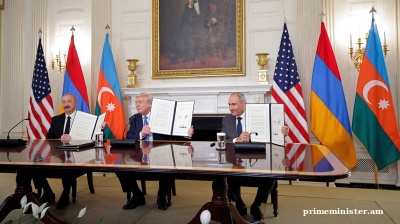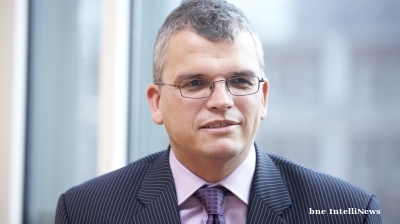“I come to bury Caesar, not to praise him.” – Mark Antony, William Shakespeare, Act III, Scene II, line 74
As Russia marches from failure to failure in Ukraine and the realisation of imminent defeat crystalises in the minds of the Moscow elites, Vladimir Putin’s grasp on power grows ever more tenuous. Defeat on the battlefield and in the international public arena has unleashed a phenomenon considered long dead in Putin’s Russia – tangible political dissent and fragmentation within the elite.
This development is significant, as it originates from within Putin's power establishment, starkly contrasting with past challenges from figures such as Alexei Navalny and the so-called “Russian liberal” or “democratic forces”. These threats, while irritating for Putin, were never truly politically dangerous. Putin was more vexed with the fact that someone from the inside was feeding Navalny information on Putin’s inner circle to settle internecine scores. But politically, Navalny’s work posed no threat to the monolith of Putin’s power.
Today, however, the narrative is changing. The sledgehammer-wielding former chef and current head butcher of the Wagner Group, Evgeniy Prigozhin, has very publicly and hysterically put political discourse and destructive power struggles within Putin’s elite on public display. In video after video, he continues to raise the stakes in his clash with the Ministry of Defence, and by proxy, it appears with Putin himself.
Prigozhin has called out the Minister of Defence Sergei Shoigu and Chief of the General Staff Valery Gerasimov for everything ranging from incompetence to willful sabotage of the Russian war effort. He is constantly alleging in long, well-staged videos that they undermine his Wagner Group by starving them of ammunition.
At the same time, the regular Russian army surrenders positions around Bakhmut without a fight that Wagner has spent months capturing, leaving Wagner to die slowly, unable to advance against the Ukrainians nor retreat to the Russian Army, as he was warned he would be fired upon as payback for his public frankness.
Despite this he continues unabated, publishing a letter to Shoigu inviting him to visit the front lines and share his vast military experience with the troops. Shoigu does not have a day’s worth of military training, and Prigozhin continues to emphasise that shortcoming every chance he has.
The situation peaked on May 9 when Prigozhin made a provocative statement, asking what the country should do if "Grandpa" turned out to be nothing but a complete “dickhead” (mudak) whose incompetence puts Russia’s entire future at risk. While he named no names, everyone knew the target of his venom. Though Prigozhin listed three potential figures, including Shoigu and Gerasimov, unlike Putin, none had been called "grandpa" since the start of the war.
Prigozhin is in a highly precarious position, both geographically and politically. Stranded in Bakhmut and failing to deliver his promise to Putin to seize the city, he is caught between the relentless defence of Ukrainian forces at his front and the Russian army at his flank. His military options are dwindling, prompting him to resort to politics, a potentially more perilous battlefield.
Prigozhin may now be facing the final stanza, as it has been alleged that he offered to disclose Russian army positions to the Ukrainian military, which could seal his fate as another casualty of this war.
He is joined in his chorus by Igor “Strelkov” Girkin, the notorious ultra-nationalist who led Russia's 2014 invasion of Donbas and was prosecuted in The Hague for his role in shooting down flight MH17. Girkin has formed the "Club of Angry Patriots," a band of Russian Nazis advocating radical escalation of the war. He has become the face of actual Russian Nazis, calling for expanding the war to tactical nuclear weapons and launching an attack on Kazakhstan to install a regime loyal to Moscow.
He is broadcasting from a pulpit even farther right of Prigozhin, criticising the Russian military's utter failure and Putin. While Prigozhin levels his criticism at Putin indirectly, Girkin has been calling Putin out for mismanagement and incompetence loudly and forcefully for over a year.
The criticism, however harsh, is not the real surprise. It is the fact that both are engaging in it with impunity. This suggests that they are weather balloons floated to gauge the extent of Putin’s resolve and his ability to quelch dissent, not among the general population but among the elites who are slowly but surely drawing their knives in anticipation of Putin’s collapse.
Prigozhin has been linked to Sergei Kirienko, the head of the presidential administration, and the Kovalchuk brothers. Girkin is the face of more radical interests, happy to highlight Prigozhin’s Jewish heritage and colour his criticism with a good dose of Russian anti-semitism. Both are ruthless poster children for claims preparing for battle out of the spotlight.
Putin’s impotence in dealing with the two upstarts presents an existential threat to his regime. Ironically, Putin has fully rehabilitated Stalin as an emblem of strict rule, only to look weak in comparison from the point of view of his electorate. Propagandists such as Vladimir Solovyov have been calling for Stalin's punitive approach towards dissenters, and the return of punitive execution teams to weed out them out. Stalin turned executioners into victims at a whim; Putin has not, and it's unlikely that it is because of a kind heart and high moral conviction. It signals the weakness of his position and his regime's fragility and precarious grip on power.
However, there may be other threats than these public outpourings of venom. A more significant challenge to Putin's regime may be brewing beneath the surface. Intercepted phone conversations among oligarchs reveal a loss of faith in Putin and his inner circle. The establishment of over 40 private military corporations in the past year, with Gazprom alone forming three, hints at political instability beyond public dissent. Prigozhin and Girkin are just the public faces of private interests trying to gauge when the time is right to pounce on a bloodied and weak leader.
The camps vying for control come from opposite sides of the criminal spectrum: those who have hope of rehabilitation by the international community and those who are completely beyond salvation. While the former would look for a rapprochement with the world, the latter will put Russia on the path of North Korea, oppression and isolation for their preservation. However, before Russia’s future can be charted, there will be a struggle for control of the country and of Putin’s vast personal assets squirrelled away worldwide.
These competing interests are engaged in political manoeuvring behind the scenes. However, once Russian losses on the battlefield mount and Ukraine begins to push the Russian army out of the occupied territories, the delicate house of cards will fall. A scenario of Russia dissolving into a free-for-all between the various political and financial factions is easy to envisage. While it is hard to predict the outcome, one thing is crystal clear: Vladimir Putin will not be a part of it. His burial pyre has been prepped, awaiting its “Caesar”.
Alexander Kabanovsky is a former Russia-based banker and entrepreneur. This article first appeared on his substack “Thinking Out Loud” here.
Opinion

Europe faces harsh realities in Ukraine as long war looms - Ash
Timothy Ash, senior sovereign strategist at BlueBay Asset Management in London, says European policymakers are belatedly waking up to the fact that the war in Ukraine is set to be prolonged — and that they alone may have to foot the bill.

COMMENT: US-brokered Armenia-Azerbaijan peace deal exposes Russia’s strategic failures
The recent peace breakthrough between Armenia and Azerbaijan is a major diplomatic win for the United States and a setback for Russia, according to a new report published by the Atlantic Council.

COMMENT: Why Beijing will never take Taiwan
Xi Jinping needs to think again before he sends so many young Chinese men and women to their deaths on Taiwan, for if the PLA does one day dare to land, they will be buried here.

COMMENT: Ukraine’s coming financial storm
“A crisis is drawing ever closer. It will break in Ukraine, but it won’t begin on the frontlines, where the country’s battle-weary brigades continue to impose a brutal cost on the Russian invader," writes Timothy Ash of BlueBay Asset Management.



